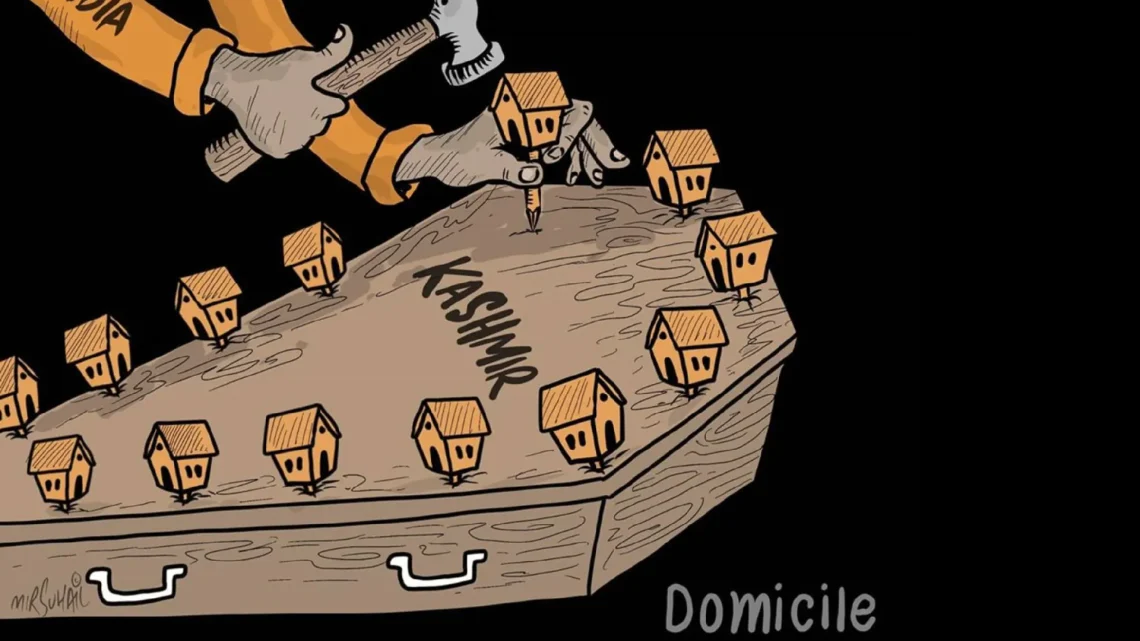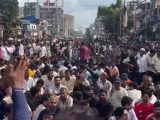
India’s Illegal Actions of Demographic Changes are a Blatant Effort of Settler Colonialism in IIOJK
September 25, 2024The Indian government’s recent actions in Indian illegally occupied Jammu and Kashmir (IIOJK) have raised alarms about potential demographic changes and the imposition of a Hindutva agenda.
Critics argue that these measures are designed to alter the region’s demographic balance and marginalize its Muslim majority. The revocation of Article 370 in 2019 was perceived as a strategic move to engineer such changes.
Following this revocation, the Indian government introduced electoral rights for non-locals, predominantly non-Muslims. This change allows approximately 93,000 new voters to register in a Muslim-majority region.
This move has been described as “demographic apartheid,” aimed at shifting the political landscape in favor of the ruling Bharatiya Janata Party (BJP). The delimitation process has further compounded these concerns.
The number of constituencies in the Hindu-majority region of Jammu increased from 37 to 43. Predominantly Muslim areas like Rajouri and Poonch have been reallocated to the Anantnag constituency.
Critics contend that these alterations dilute the Muslim vote and facilitate the rise of a Hindu Chief Minister in a historically Muslim-governed region. A controversial domicile law has also been introduced.
This law allows any Indian citizen residing in the region for over 15 years to register for domicile certificates. It grants citizenship rights, including the ability to buy land.
Under the land-for-landless scheme, approximately 9,000 plots have been allocated to settlers, primarily Hindus. Critics argue that these policies aim to erase Kashmiri identity and transform the Muslim-majority region into a minority.
Reports indicate widespread land grabs by the Indian military and paramilitary forces. About 53,353 hectares of land in IIOJK are currently under military occupation, raising serious concerns about land rights.
The government’s plan to invite applications for 10,000 houses to be allotted to non-Kashmiris signals a trend of dispossession. Further inflaming tensions are incidents of violence against Muslims.
There have been reports of Hindu extremists storming mosques, compelling worshippers to chant pro-Hindu slogans. Such acts illustrate rising intolerance and the Modi regime’s commitment to fostering Hindu nationalism.
Human rights organizations have condemned India for its violations in IIOJK. The United Nations Human Rights Council (UNHRC) and Amnesty International have both highlighted these grave concerns.
These organizations argue that the Modi government’s actions contravene international norms and obligations, leading to a humanitarian crisis. The international community is urged to take notice of these abuses.
Critics view the Indian government’s policies as a manifestation of settler colonialism. They draw parallels to historical injustices faced by indigenous populations worldwide.
As the situation unfolds, the potential for increased unrest and violence remains high. The trajectory of the Indian government’s actions threatens the fundamental rights of residents in IIOJK.
Without immediate intervention and accountability, the aspirations of the Kashmiri people for self-determination risk being overshadowed. The aggressive imposition of a majoritarian agenda could destabilize the entire region.

